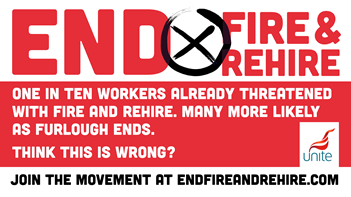Living Wage changes lives
For thousands of workers up and down the country, the Living Wage – not the government’s bogus rebranding but the â€real’ Living Wage – has changed lives to the tune of thousands a year.
For some, it has meant the difference between not having had a holiday in over a decade and taking your kids to the seaside for a long weekend for the first time; between barely being able to afford to transport yourself to work – leaving at 4am each day to take multiple buses into the city centre – and getting your first travel card.
Indeed, the Living Wage has for thousands even meant the difference between debilitating hunger and eating three square meals a day.
On Monday, the Living Wage – a voluntary pay rate calculated by researchers as the minimum wage workers must earn in order to enjoy a decent, if modest, standard of living – rose to £9.75 an hour in London and £8.45 an hour in the rest of the UK.
For full-time workers earning the Living Wage, this year’s increase will mean those in London will earn £95 more each week than workers on the mandatory minimum. Those paid the Living Wage outside the capital will earn £45 more each week than their minimum wage counterparts.
Living wage employers
Being an accredited Living Wage employer is no longer a rarity. This year, the total number of employers signed up to pay the higher rate has climbed to 2,000 – double the number of employers on the list only two years ago.
Joining the list of Living Wage employers in the last year are Everton Football Club – only the second Premier League club to become Living Wage employers after Chelsea F.C. – and big-name companies such as Ikea, Curzon Cinemas and Olivar Bonas.
Ikea told the Financial Times this week since introducing the Living Wage in April, the company has seen a decrease in staff turnover, fewer staff absences and an increase in the quality and quantity job applicants.
“Introducing the Living Wage is not only the right thing to do for our co-workers; it also makes good business sense,” said IKEA country manager Gillian Drakeford. “This is a long-term investment in our people based on our values and our belief that a team with good compensation and working conditions is in a position to provide a great experience to our customers.”
Thousands of Living Wage employers have seen these and other benefits such as increased worker productivity as well as greater brand awareness.
Introducing the Living Wage would also make a huge difference to public finances – researchers estimate that its implementation in London alone would save the government £1bn a year in wage top-ups.
‘Priceless’
And of course, for workers themselves the difference a Living Wage makes is priceless.
Unite community co-ordinator Jamie Caldwell has been at the forefront in the fight for a Living Wage, particularly for young workers as part of a Unite campaign called Fight for 5.
Its aims are to organise young activists to demand not only better pay but other conditions that constitute decent work such as trade union representation, job security, workplace safety and guaranteed hours.
He tells the story of a young Unite community member who was once working for a non-living wage company and eventually found a job with an accredited Living Wage employer.
“It meant the world to him,” Caldwell notes. “It meant he was able to move out of his parents’ house, to live independently and to have a bit of extra money to save or go out now and again.”
Not just about scraping by
Caldwell believes that we must fight the austerity-era stigma that’s developed around earning enough money to enjoy life.
“This is what it means to earn a real Living Wage – it’s not about just barely scraping by. You should be able to afford to go on holiday, to buy things, to go out with friends and family – to live. In turn this benefits all of us as money that’s spent keeps the economy running and boosts public finances.”
Caldwell says that Unite community’s Fight for 5 campaign has encouraged young workers – who are among the most exploited, earning less than the legal minimum of £7.20 if they’re under 25 – to support one another.
“It’s all about empowerment,” he explained. “And it’s working. Our activists are learning that through collective action you can demand from work more than just the bare minimum.”
Unite assistant general secretary Steve Turner believes a true Living Wage can become a reality for all.
“The thousands of employers who’ve signed up to the Living Wage since it was first introduced – companies of all sizes, from family-run shops to giant multinationals – demonstrate that you can run a successful business by paying workers a decent, liveable wage,” he said.
“We at Unite argue that a much higher mandatory minimum wage, in line with a true Living Wage, is not only entirely affordable but will be beneficial for the whole economy.”
“Of course the real answer to lifting low-paid workers out of the scourge of poverty pay and addressing growing levels of inequality in society is for government to introduce regulated sectoral and workplace level collective bargaining,” Turner added.
“Strong effective trade unions are part of the solution and can help create an economy that works again for everyone. Public investment to create decent jobs, stronger trade unions and higher wages means more money in people’s pockets, a growing economy and better public finances – this is the only way we’ll shake off the decade of lost wages and living standards this government has presided over.”
 Like
Like Follow
Follow


